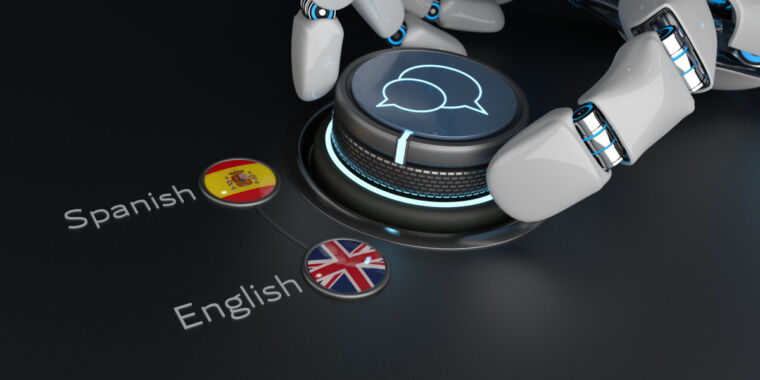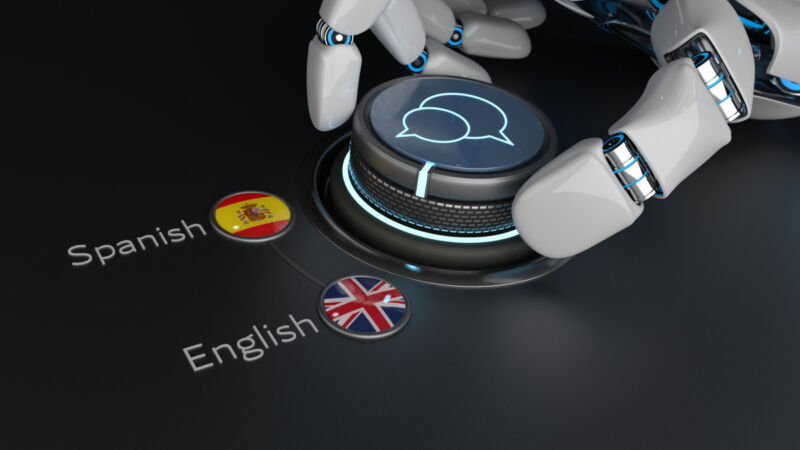You are using an out of date browser. It may not display this or other websites correctly.
You should upgrade or use an alternative browser.
You should upgrade or use an alternative browser.
2025 UPDATE!! AMZN MSFT slash jobs!! AI blackmails! Altman: prepare for AI to be "uncomfortable"…33% jobs gone…BASIC INCOME?
- Thread starter GnauzBookOfRhymes
- Start date
More options
Who Replied?GnauzBookOfRhymes
Superstar
GnauzBookOfRhymes
Superstar

CGI expert predicts eerie way Hollywood will fool us all with AI film
Steve 'Spaz' Williams pioneered the VFX used in Terminator 2 and Jurassic Park and has warned about AI since the 1980s.
Robots are pouring drinks in Vegas. As AI grows, the city's workers brace for change
September 4, 20235:00 AM ET
Heard on All Things Considered
Deepa Shivaram
LISTEN· 4:364-Minute ListenPLAYLIST
- Download
- Embed
- Transcript

This bar inside Planet Hollywood on the Las Vegas strip has two robots that serve customers drinks. The Tipsy Robot opened a second location on the strip this year.
Deepa Shivaram/NPR
Walk any direction in Las Vegas and it's easy to find machines doing human work.
Check-in kiosks have replaced people at the front desk of hotels. Text-bots now make restaurant recommendations instead of a concierge. Robots can serve food, and behind the bar, machines are pouring out drinks.
Automation and technology replacing jobs has long been a conversation in Nevada's most populated city. Studies show that between 38% to 65% of jobs there could be automated by 2035.
With the use of artificial intelligence on the rise, the economy of this city --which relies on tourism and hospitality — is at an inflection point, as companies look to technology to reduce labor costs.
"Wherever the resort industry can replace their workers and not affect productivity, profits or the customer experience — wherever they can do that with artificial intelligence... they will," said John Restrepo, principal at RCG Economics in Las Vegas.
"The question is, how do you factor in and how do you adapt your economic development strategy, your community strategy, your resiliency strategy to accommodate a world where certain jobs no longer exist?" he said.
Restrepo said he believes the city has to diversify its economy to be less reliant on tourism and hospitality.
"We need to move ... to those occupations that are more highly skilled, that are not easily replaced by AI and that provide a greater level of balance and resilience so we're not so hard-hit," Restrepo said.

Culinary Union Secretary-Treasurer Ted Pappageorge speaks during a rally along the Las Vegas Strip in August. Pappageorge said the union is ready to strike over AI if necessary.
John Locher/AP
The Culinary Union is prepared to strike over AI
Unions in Las Vegas are closely watching the changes. The largest union in Nevada, the Culinary Union, represents 60,000 service and hospitality workers in Las Vegas and Reno. Later this year, it hopes to have a new negotiated contract that includes protections against AI replacing jobs.
"We had a huge fight about tech in our previous contract. We're going to have the same fight this time around," Ted Pappageorge, the secretary-treasurer of the union, told NPR.
In its last contract in 2018, the union pushed for companies to agree to a six-month warning for workers for new technology introduced in the workplace, as well as free training on how to use the new technology.
"How do our folks make sure that the jobs that remain, that we can work them? And that we're not thrown out like an old shoe? We're not going to stand for that," Pappageorge said.
While the precise impact of AI on service work is not yet clear, the union is prepared to make AI an issue to strike over when it negotiates its new contract, Pappageorge said.
"We'd like to say we're going to be able to get an agreement. But if we have to, we're going to have a big fight and do whatever it takes, including a strike on technology," he said.
AI and machines can't replace the human touch, some workers say
Sabrina Bergman works at the Tipsy Robot, a bar inside Planet Hollywood on the Las Vegas strip. Her job is to help the robot do its job, tending bar. When the robot accidentally tips over a cup, she resets it. If the robot doesn't pour a full drink, she tops it off.
Bergman said she's not worried about the machine replacing her entirely — even though the bar just opened a second location earlier this year.
Bergman and other service workers told NPR there are some human jobs that technology can't eliminate. Machines don't have the same human touch and cannot provide the same experience, they said — and often times, the machines add more work.
"We have a lot of guests that are regular guests, and they come for the personal interaction. They don't come for the technology," said Holly Lang, a cocktail waitress at the MGM Grand. "There's some things you can't replace."
Lang said she's confident the Culinary Union will establish good protections. "A lot of people are concerned that it'll take our jobs but we have more comfort in the fact that we have contracts to protect us ... we've fought hard to keep our jobs for a long time," Lang said.
It's not just service workers who will be affected
Artificial intelligence won't just impact lower-wage jobs. Technology like ChatGPT, which is a form of generative AI, will impact white collar jobs, too, in fields like accounting and data entry.
In some cases, AI will help make workers more productive, while other roles might be eliminated entirely. AI is also likely to create brand new jobs that don't even exist yet.
Las Vegas city officials are starting to brace workers for that shift now. In August, the local Chamber of Commerce hosted a panel on using AI. A few dozen people attended, including Tony Yee, who owns a small moving company in the city.
He said he wants to learn how to use AI to build his company, and use the technology to help him with tasks like dealing with customer evaluations.
"I am really intrigued with AI and I know it's the next frontier. It's just like how people didn't believe in the internet in the '90s," Yee said.
"This is the next revolution, and if you're not on board, you're going to be left behind. And I don't want to be left behind."
Audio story produced by Lexie Schapitl
^
I love hanging out with bartenders and chatting up friendly servers. I wouldn’t trade that for getting my beer 2 minutes faster. And I hope that the majority of humans feel the same.
Hopefully some of these ‘hospitality’ businesses get hit in their pocket for being inhospitable to humans. Or we start putting a premium on human interaction.
I love hanging out with bartenders and chatting up friendly servers. I wouldn’t trade that for getting my beer 2 minutes faster. And I hope that the majority of humans feel the same.
Hopefully some of these ‘hospitality’ businesses get hit in their pocket for being inhospitable to humans. Or we start putting a premium on human interaction.
GnauzBookOfRhymes
Superstar
Pilots.

 www.politico.com
www.politico.com
Planemakers look to a pilotless future
Europe is moving forward with regulations that only require one pilot in the cockpit for long-haul flights. The rest of the world could follow suit.
GnauzBookOfRhymes
Superstar
^
I love hanging out with bartenders and chatting up friendly servers. I wouldn’t trade that for getting my beer 2 minutes faster. And I hope that the majority of humans feel the same.
Hopefully some of these ‘hospitality’ businesses get hit in their pocket for being inhospitable to humans. Or we start putting a premium on human interaction.
Breh this is going to fukk over so many people. There are bartenders who make a very good living who will have to enter a job market w/o a degree and listing bartender as their only professional experience.

“AI took my job, literally”—Gizmodo fires Spanish staff amid switch to AI translator
Meanwhile, readers say that some AI-penned articles switch languages halfway through.
“AI took my job, literally”—Gizmodo fires Spanish staff amid switch to AI translator
Meanwhile, readers say that some AI-penned articles switch languages halfway through.
BENJ EDWARDS - 9/5/2023, 3:57 PM
Getty Images
Last week, Gizmodo parent company G/O Media fired the staff of its Spanish-language site Gizmodo en Español and began to replace their work with AI translations of English-language articles, reports The Verge.
Former Gizmodo writer Matías S. Zavia publicly mentioned the layoffs, which took place via video call on August 29, in a social media post. On August 31, Zavia wrote, "Hello friends. On Tuesday they shut down @GizmodoES to turn it into a translation self-publisher (an AI took my job, literally)."
FURTHER READING
Meta’s “massively multilingual” AI model translates up to 100 languages, speech or textPreviously, Gizmodo en Español had a small but dedicated team who wrote original content tailored specifically for Spanish-speaking readers, as well as producing translations of Gizmodo's English articles. The site represented Gizmodo's first foray into international markets when it launched in 2012 after being acquired from Guanabee.
Newly published articles on the site now contain a link to the English version of the article and a disclaimer stating (via our translation from Google Translate), "This content has been automatically translated from the source material. Due to the nuances of machine translation, there may be slight differences. For the original version, click here."
Este contenido ha sido traducido automáticamente del material original. Debido a los matices de la traducción automática, pueden existir ligeras diferencias. Para la versión original, haga clic aquí.
So far, Gizmodo's pivot to AI translation hasn't gone smoothly. On social media site X, journalist and Gizmodo reader Víctor Millán noted that some of the site's new articles abruptly switch from Spanish to English midway through, possibly due to glitches in the AI translation system.
G/O Media's decision to eschew human writers for AI is part of a recent trend of media companies experimenting with AI tools as a way to maximize content output while minimizing human labor costs. However, the practice remains controversial within the broader journalism community.
Earlier this summer, Gizmodo began publishing AI-generated articles in English without informing or involving its editorial staff. The stories were found to contain multiple factual inaccuracies, leading the Gizmodo union to criticize the practice as unethical.
For Spanish-speaking audiences seeking news about science, technology, and Internet culture, the loss of original reporting from Gizmodo en Español is potentially a major blow. And while AI translation technology has improved significantly over the past decade, experts say it still can't fully replace human translators. Subtle errors, mistranslations, and lack of cultural knowledge can impair the quality of automatically translated content.
Even translating within the same language can cause problems with context, as we recently saw with an AI-written Microsoft article that listed a Canadian Food Bank as a "cannot miss" tourist destination, using the unfortunate rephrasing of a blurb from the Food Bank's official website that touted, "Consider going into it on an empty stomach." It's easy to imagine even more embarrassing mistakes due to autonomous translation between languages.
So far, we've seen in our AI coverage that automated publishing does not tend to go well, especially if sites want to cultivate a human readership. But with so many media companies chasing revenue through SEO manipulations and AI-written filler, it's unlikely that we'll see the end of this apparently cost-cutting AI trend soon.
GnauzBookOfRhymes
Superstar
/cloudfront-us-east-2.images.arcpublishing.com/reuters/H6UEGWIWQJPIFGN2Q5R2PC6Q7Q.jpg)
China suspected of using AI on social media to sway US voters, Microsoft says
Microsoft researchers said on Thursday they found what they believe is a network of fake, Chinese-controlled social media accounts seeking to influence U.S. voters by using artificial intelligence.
Chyyyna
GnauzBookOfRhymes
Superstar

The Technology Facebook and Google Didn’t Dare Release
One afternoon in early 2017, at Facebook’s headquarters in Menlo Park, Calif., an engineer named Tommer Leyvand sat in a
dnyuz.com
Imagine how much stress it adds to daily existence knowing that "big brother" is not only watching you like this, but tracking your minute-to-minute productivity.
Suddenly even a relaxing sitdown at the cafe can't be relaxing because you know the camera is tracking how many minutes you've been there and is already starting a countdown towards kicking you out.
GnauzBookOfRhymes
Superstar

Project Gutenberg has implemented one of the worst AI fears of striking actors
Virtually overnight, Project Gutenberg turned ebooks in its digital library into audiobooks, without any need for human voices
Project Gutenberg has implemented one of the worst AI fears of striking actors
Virtually overnight, Project Gutenberg turned ebooks in its digital library into audiobooks, without any need for human voices
ByJulia Malleck
PublishedWednesday 12:08PM

On the picket line in Hollywood.Photo: David McNew (Getty Images)
The oldest digital library in the world, Project Gutenberg, has transformed thousands of ebooks into audiobooks using AI—bypassing the longer (and more expensive) process of hiring a human reader to do the job. It’s exactly the kind of AI application that actors, who are currently on strike in the US for the first time in four decades, fear may endanger their careers.
Using synthetic speech technology, Project Gutenberg, in partnership with Microsoft and MIT, transformed more than 5,000 of the ebooks in its free and open access collection into audiobooks. Available on Spotify, Apple Podcasts, and Google Podcasts, the library now contains an eclectic mix of titles such as The War Poems by Siegfried Sassoon and England, My England by DH Lawrence, all of which are open-license.
The collection is read in a male voice—youthful, with an American accent—in a delivery that (to this writer’s ears) is fairly naturalistic. Aside from an occasional stilted pause, it would be difficult to recognize it as AI-generated speech.
Project Gutenberg’s AI audiobook reader is no match from Stephen Fry
What the reading does lack is the versatility and depth that human actors bring to the same work. It’s a far cry from, say, Stephen Fry, who created a unique voice for dozens of characters while reading the Harry Potter audiobooks. But Project Gutenberg’s audiobooks are free, the process is quick, and the text-to-speech system used is scalable. The threat that such technologies pose to acting work is clear.Project Gutenberg’s methodology was published in a report (pdf) titled “Large-Scale Automatic Audiobook Creation,” on Sep. 7, and the code for the project is open source. In the introduction, the research team mentions that “audiobooks can take hundreds of hours of human effort to create, edit, and publish.” Later on, the authors say: “Our system allows users to customize an audiobook’s speaking speed and style, emotional intonation, and can even match a desired voice using a small amount of sample audio.”
Project Gutenberg is a volunteer-run, non-profit organization whose mission is to “encourage the creation and distribution of ebooks.” Ironically, the archive itself has been used to train AI models like Meta’s Llama.
Quartz has contacted Project Gutenberg for comment.
Actors on strike want to protect their livelihoods from AI
AI has been a central bargaining point in the current US actors’ strike. The Screen Actors Guild and American Federation of Television and Radio Artists (SAG-AFTRA) has been on strike since July 14, demanding not only better wages and shares of residual, but also protections from AI technology that can create a “digital replica” of an actor without their consent. Digital replicas include a person’s image and as well as their voice.On Sep. 5, Fran Drescher, the president of SAG-AFTRA, wrote in a letter to the union’s members that protections from AI were not only “righteous and fair” but also necessary to guard against its “existential threat” to their work, especially given the lack of regulation.
“A great deal of our members’ work in this space is voiceover, and the capacity to cheaply and easily create convincing digital replicas of performer voices is already here and widely available,” Drescher wrote in the letter. “Without protections, not only will this be the future of how voices are recorded for video game characters, but your own voice recordings will be used to train the AI systems that replace you.”
The fact that the Project Gutenberg method can use a single audio sample to build out an entire text-to-speech voice is case in point.
Most voice actors aren’t in a union, though. Only about 18% of those in the trade are SAG-AFTRA members, according to data from a 2022 survey conducted by the National Association of Voice Actors. More than 64% in the survey said that they were non-union. Given the industry’s relatively less organized nature, it will only get easier and easier for AI to take over tasks that once only humans could do. Uniting their voices might be what it takes to ensure that voice actors can keep their rights to using them.
